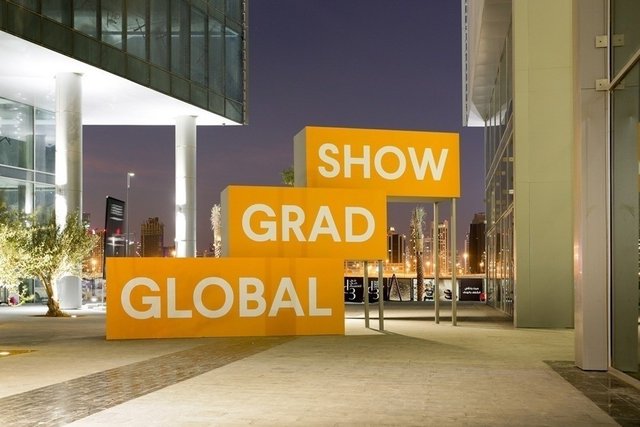Mind of the future [featuring saifer87]

Good morning everyone! Did you know that a few days ago the fourth edition of the Global Grad Show in Dubai was held, after hosting over 200 small “strokes of genius” by the students of the best design schools in the world. The exhibition, the largest dedicated to emerging designers, which welcomed students of 92 universities and institutes from more than 40 countries this year, offers a glimpse of the daily life of the future, which will be a bit ‘out of the box and – we hope – more sustainable. Here are seven projects that have stood out for their originality.
TWENTY. Did you know that 80% of household cleaners and the person we normally use are generally made of water? It means that the transport system of these products produces tons of CO2 emissions to transfer from one place to another … the same thing that comes out of the tap. Not to mention the waste of plastic packaging. Mirjam de Bruijn from the Design Academy Eindhoven (The Netherlands) has devised a series of dehydrated capsules containing the remaining ingredients of various cleaning products. Once immersed in water, stirring a little and you get a product with the same characteristics and the same density of what we would buy ready. Simple and revolutionary at the same time: it is no coincidence that Mirjam was awarded the jury prize of this year’s Global Grad Show.
WATER SUMS IN CANDIES. After spending a few weeks in close contact with her grandmother suffering from dementia, Lewis Hornby of Imperial College London has found a system to deal with a problem that often afflicts those in this condition: dehydration. The difficulties in handling the glass and in swallowing, the non-recognition of the stimulus of thirst, the utility of the glass or the instructions for drinking mean that elderly people with dementia do not always take enough water. Hornby has decided to include it in Jelly Drops, 90% water drops (plus some excipient to encourage absorption) but in all respects similar to colored candies, easy to grasp and hardly rejected by patients who preserve their curiosity for desserts. Seven Jelly Drops provide the same hydration as a glass of water, but are more easily accepted.
A ROBOTIC IMPOLLINATION SYSTEM. We hope we never get there, but if the bees were to disappear altogether, it could be useful STEM, the robotic arm created by Peter Cheah of Melbourne’s Monash University: the plants arranged in small greenhouses alternate in rotation to finish in the clutches of an artificial stem that transfers the pollen from one to the other, as the insects have always done.
ROAD BUCATO. C. Mile is a washing machine obtained in the last place that would come to mind: the wheel of vehicles for the transport of goods. Masoud Sistani has thought about the hauliers in his country, Iran, who spend a lot of time away from home and need to wash their clothes. The washing machine would be made in the innermost compartment of the wheels and activated by the movement of the vehicle.
CLEAN AND REUSE. The techniques currently used to clean up the patches of oil poured into the sea do not allow the reuse of the crude recovered from the water. NOAA POR uses magnetically charged iron oxide nanoparticles as well as special filters to separate the two liquids and not to lose the hydrocarbons: an extra incentive to clean up the polluted ecosystems. The project is by Julianna Probst, of the University of Cincinnati.
THE BASE FOR PLANTS. Zhang Liye of Huazhong University of Science and Technology (China) drew inspiration for his ACORN from last year’s Dubai fair. He realized that the deserts that surround the city are poor in nutrients needed to grow plants: water can be recovered, but how to make up for the missing minerals? Zhang has decided to re-use the waste material from the crops to create biodegradable tablet bases to be inserted into the subsoil, to make substrate for new plants. The roots of the new arrivals absorb ACORN minerals and nutrients, and after 4 months the base has completely dissolved in the soil, which leaves richer than when it arrived.
THE MASCARA THAT LASTS 10 YEARS. Not all inventions to be worthy of note must save the world. Some can put an end to minor inconveniences and contribute to their less pollute less: Infinity mascara is a reusable set for eyelash makeup consisting of an external container and a thimble-shaped applicator with a decennial duration, and a system of refills that replaces every 3-6 months. Pippa Bridges of Loughborough University (England) has thought of it to put an end to the waste of tubes for mascara: plastic containers that have a life of a few months, and therefore end up in the cycle of waste that we know well.
WELL, HOPE I HAVE MADE YOU LIKE TO KNOW THESE SEVEN NEW CREATIONS PROPOSED BY YOUNG BOYS THAT HAVE DECIDED IN THE MEANING TO RESERVE THANKS TO THEIR GENITALITY TO ALL CONSUMPTIONS AND ABOVE ALL THE WASTES MADE FROM THE MAN IN THE LAST TIMES.
safer link

To listen to the audio version of this article click on the play image.

Brought to you by @tts. If you find it useful please consider upvoting this reply.
that's some pretty whacked sh*t (-:
:(